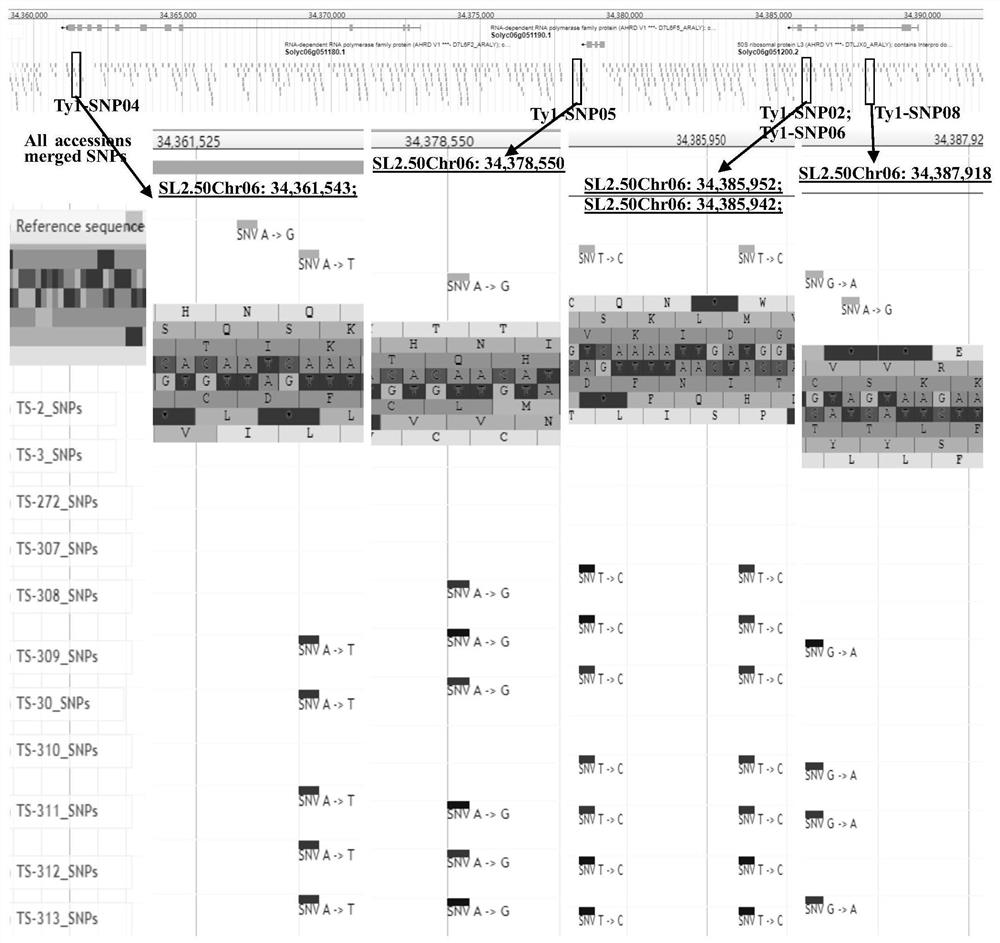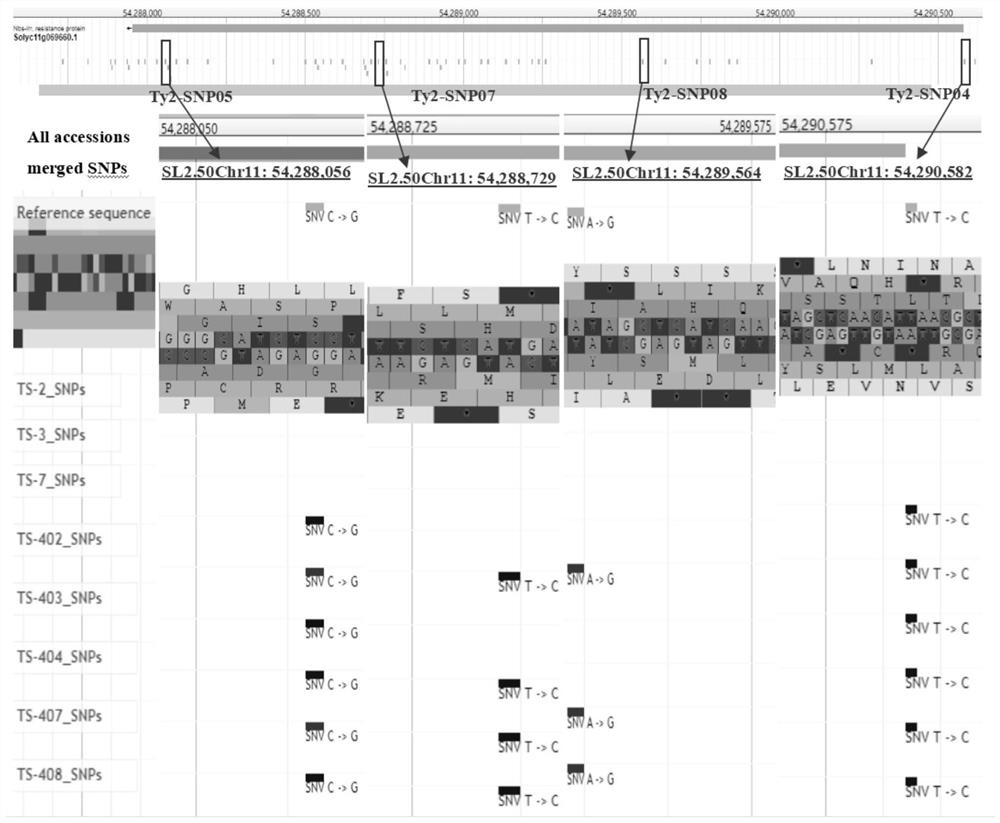Combination of SNP loci for detection of tomato yellow leaf curl virus disease resistance and its application
A technology for tomato yellowing and curving leaves and viral diseases, applied in the field of plant biology, can solve the problems of linkage burden, ineffective selection of target genes, and insufficient versatility of SNP sites, etc., achieve accurate detection, improve breeding efficiency, and reduce manual inoculation identification and field transplanting workload
- Summary
- Abstract
- Description
- Claims
- Application Information
AI Technical Summary
Problems solved by technology
Method used
Image
Examples
Embodiment 1
[0080] Example 1 Screening of SNP site combinations
[0081] 1. Experimental materials
[0082] The variation group data of 660 representative tomato germplasm resources worldwide, from different source types, are selected for the SNP site screening in this example. The source of the tomato variation group data is mainly based on the preliminary work of the project team where the inventor is located. (Lin, T., Zhu, G., Zhang, J. et al. Genomic analyses provide insights into the history of tomato breeding[J]. Nat Genet, 2014, 46: 1220~1226; Tieman D, Zhu G, Resende M F R , et al. A chemical genetic roadmap to improved tomato flavor[J]. Science, 2017, 355(6323):391). Among them, the genotype data of some tomato germplasm resources and the resistance phenotype data of Ty-1 / Ty-3 and Ty-2 genes were obtained from the existing public database (https: / / solgenomics.net / ).
[0083] 2. Screening of SNP site combinations
[0084] Using target genes Ty-1 / Ty-3 genes (Solyc06g051170, Sol...
Embodiment 2
[0088] Example 2 Primer synthesis and kit preparation
[0089] 1. Primer design and screening
[0090] According to the flanking sequences of Ty1-SNP01 site~Ty1-SNP08 site and Ty2-SNP01 site~Ty2-SNP08 site provided in Example 1, for each SNP site, adopt the design and development principle according to KASP marker (target product 80-150bp, the primers specifically match the target region on the reference genome and are located in non-SNP-intensive regions, avoiding complex sequence regions with high A\T or G\C content, etc.), using Primer3.0 software to design two upstream of the SNP site Forward primer, downstream design a reverse primer.
[0091] The tomato samples to be tested include some germplasm resources with known genotypes and yellow leaf curl virus disease resistance phenotypes and 21 randomly selected samples from the breeding materials as resistance, sensitivity or heterozygous controls, and finally add 3 ddH 2 O as the NTC blank control, a total of 24 copies. ...
Embodiment 3
[0109] Example 3 Validation and breeding application of highly efficient KASP markers for tomato yellow leaf curl virus disease resistance genes Ty-1 / Ty-3 and Ty-2
[0110] Based on the SNP loci provided in Example 1, this example uses the kit (including primer combination) provided in Example 2 to carry out high-efficiency KASP of tomato anti-yellowing leaf curl virus disease genes Ty-1 / Ty-3 and Ty-2 Validation of markers works with breeding applications.
[0111] Selected 381 representative tomato samples including mainstream commercial varieties, core public germplasm of the national resource bank, intermediate breeding materials, new hybrid combinations, etc., involving large fruit tomatoes, cherry tomatoes, bunch tomatoes, fresh tomatoes, processed tomatoes and Farming varieties (landraces) and other types of cultivated tomatoes, 154 of which have obtained Ty-1 / Ty-3 and Ty-2 genotype data through third-party commercial institutions using closely linked SCAR markers (inclu...
PUM
 Login to View More
Login to View More Abstract
Description
Claims
Application Information
 Login to View More
Login to View More - R&D
- Intellectual Property
- Life Sciences
- Materials
- Tech Scout
- Unparalleled Data Quality
- Higher Quality Content
- 60% Fewer Hallucinations
Browse by: Latest US Patents, China's latest patents, Technical Efficacy Thesaurus, Application Domain, Technology Topic, Popular Technical Reports.
© 2025 PatSnap. All rights reserved.Legal|Privacy policy|Modern Slavery Act Transparency Statement|Sitemap|About US| Contact US: help@patsnap.com



